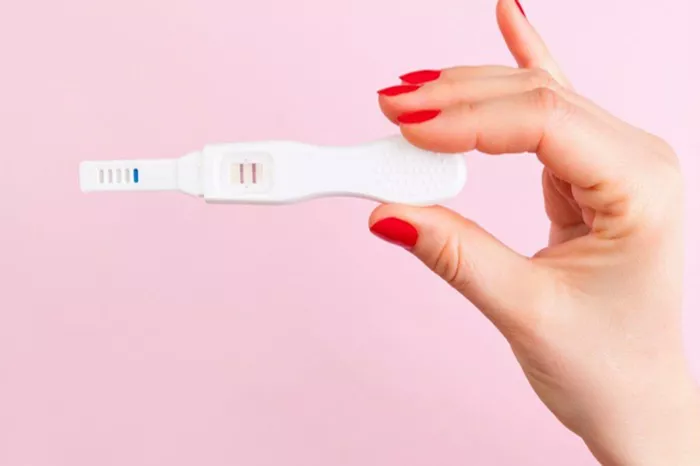Early pregnancy tests play a crucial role in confirming pregnancy shortly after conception. These tests detect the presence of human chorionic gonadotropin (hCG), a hormone produced by the developing placenta. Here’s a comprehensive look at how these tests work and their accuracy in detecting hCG.
What is hCG?
Human chorionic gonadotropin (hCG) is a hormone produced by the placenta shortly after implantation occurs. Its primary function is to support the development of the embryo and maintain the pregnancy. hCG levels rise rapidly in early pregnancy, doubling approximately every 48 to 72 hours.
How Early Pregnancy Tests Detect hCG
Early pregnancy tests are designed to detect hCG levels in urine or blood samples. Here’s how they work:
Mechanism of Detection: Most early pregnancy tests detect hCG using antibodies that specifically bind to the hormone.
Types of Tests:
Urine Tests: These are the most common type of early pregnancy test. They can be performed at home using a test strip or a midstream device.
Blood Tests: Conducted in a medical setting, blood tests are more sensitive and can detect lower levels of hCG than urine tests.
Sensitivity Levels: The sensitivity of a pregnancy test refers to its ability to detect low levels of hCG. Some tests can detect hCG as early as 6 to 8 days after ovulation.
SEE ALSO: Can I Take a Pregnancy Test After Implantation Bleeding?
Factors Affecting hCG Detection
Several factors influence the accuracy and reliability of early pregnancy tests:
Timing of Testing:
Testing too early can result in a false negative if hCG levels are not yet detectable.
Quality of Test:
Higher quality tests tend to be more sensitive and accurate.
User Error:
Improper use of the test, such as not following instructions or using an expired test, can affect results.
Health Conditions:
Certain medical conditions or medications may interfere with hCG production or detection.
Accuracy of Early Pregnancy Tests
Early pregnancy tests are generally highly accurate when used correctly:
False Positives:
Rare, but can occur due to medications containing hCG or certain medical conditions.
False Negatives:
More common if testing too early or with a low sensitivity test.
Interpreting Results
Understanding the results of an early pregnancy test is crucial:
Positive Result:
Indicates the presence of hCG, confirming pregnancy.
Negative Result:
May indicate either not pregnant or testing too early.
Tips for Using Early Pregnancy Tests
To maximize accuracy and reliability:
Follow Instructions:
Read and follow the test instructions carefully.
Use First Morning Urine:
Contains the highest concentration of hCG.
Repeat if Necessary:
If uncertain, repeat the test in a few days or consult a healthcare provider for a blood test.
Conclusion
Early pregnancy tests are effective tools for detecting hCG and confirming pregnancy soon after conception. Understanding how these tests work, their limitations, and factors influencing accuracy can help individuals make informed decisions about their reproductive health. Always consult healthcare professionals for guidance and support in interpreting test results and managing early pregnancy concerns.
FAQs
Is 2 Weeks Too Early to Detect hCG?
Detecting hCG levels depends on the sensitivity of the pregnancy test being used. Most early pregnancy tests can detect hCG levels in urine approximately 6 to 8 days after ovulation, which typically corresponds to about 1 to 2 weeks after conception. Therefore, while some tests may be able to detect hCG at 2 weeks post-conception, others may require a few more days to detect the hormone reliably. Testing too early can result in a false negative, so it’s often recommended to wait until after a missed period for more accurate results.
How Soon Can First Response Detect hCG?
First Response Early Result Pregnancy Test is known for its high sensitivity in detecting hCG. It can detect hCG levels in urine as early as 6 days before your missed period, which is typically around 5 days before your expected period. This early detection capability makes it popular among individuals who wish to test for pregnancy at the earliest possible time.
How Many Days Pregnant Can Be Confirmed by Urine Test?
A urine pregnancy test can confirm pregnancy as early as 7-10 days after conception, which is typically around 3-4 days before a missed period. This corresponds to being about 3-4 weeks pregnant from the first day of the last menstrual period (LMP). However, the accuracy of the test depends on factors such as the sensitivity of the test and the timing of testing relative to ovulation and implantation.
In summary, while some tests like First Response can detect hCG very early (around 6 days before a missed period), the general recommendation is to wait until after a missed period for the most reliable results. This ensures a higher likelihood of detecting hCG and confirming pregnancy accurately using a urine test.


